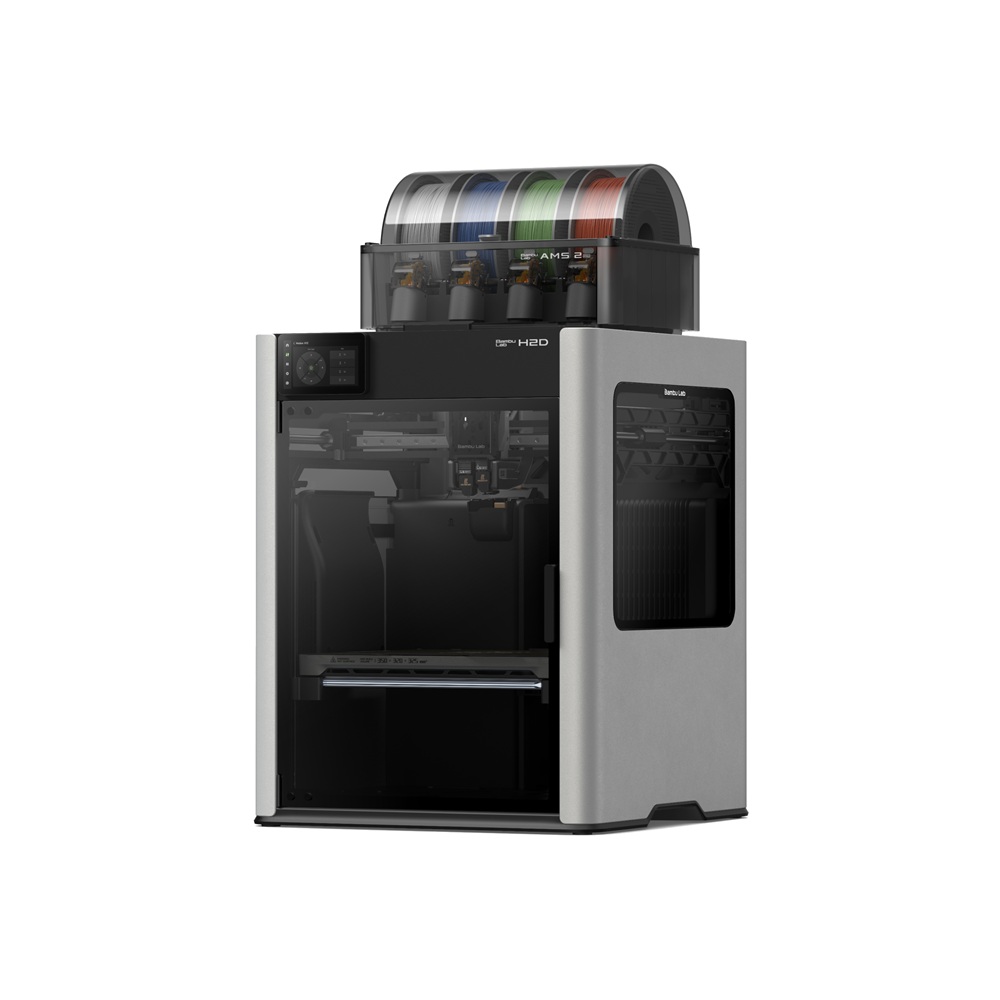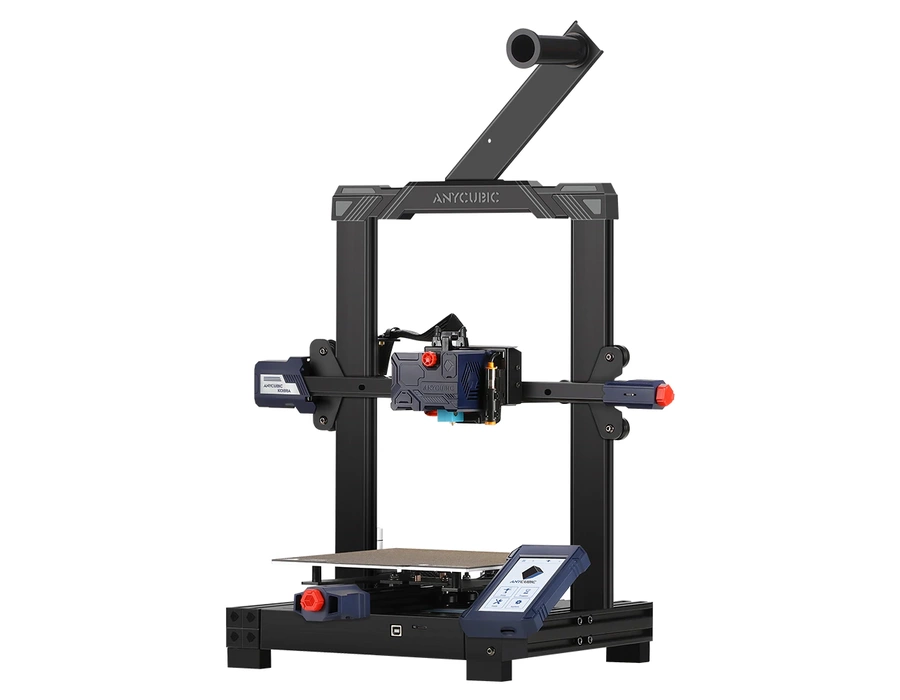Compare H2D vs Kobra
Comparison between the best 3D printers
Choose the best 3D printer at the best price. The cheapest 3D printers are here.
Buy a 3D printer here with 3D Fila.
 |
 |
|
| Model | H2D |
Kobra |
| Printing Material | Filament | Filament |
| Buy Filament for Bambu Lab H2D | Buy Filament forAnycubic Kobra | |
| Estimated price | $1899,00 | $259,00 |
| Manufacturer | Bambu Lab | Anycubic |
| Release Year | 2025 | 2022 |
| Print Volume [mm] | 350x320x325 | 220x220x250 |
| Printer Size [mm] | 492x514x626 | 486x430x486 |
| Weight [kg] | 42,3 | 7 |
| Power Loss Recovery | YES | YES |
| Enclosed printer | YES | NO |
| Bed Leveling | Automatic | Automatic |
| Filament End Sensor | YES | NO |
| Bed type | Heated | Heated |
| Power supply system | Direct Drive | Direct Drive |
| Standard nozzle | 0,4 | 0,4 |
| Maximum Nozzle Temperature [°C] | 350 | 260 |
| Maximum Bed Temperature [°C] | 120 | 110 |
| Maximum printing speed [mm/s] | 600 | 180 |
| Filament holder | YES | YES |
| Camera for supervision | YES | YES |
| Recommended filaments | PLA, PETG, ABS, ASA, TPU, PVA, Nylon (PA) | PLA, PETG, Tritan, Flex, ABS |
| Recommended slicers | Bambu Studio | Cura, Simplify, Slic3r, IdeaMaker |
| Maximum Resolution [mm] | 0,01 | 0,1 |
| Processor | ||
| Display | Touchscreen 5'' | Display touchscreen 4,3'' |
| Power Supply | 110/220V / 400W | |
| Connectivity | Wifi, Bambu bus, Cartão SD | SD / USB |
| Operating systems | Windows, Mac, Linux | Windows, Mac, Linux |
| Date of registration in the system | 2025-03-31 | 2022-11-09 |
| Release date | 2025 | 2022 |
| Extra features | Bambu Labs H2D combines high-speed 3D printing with a chamber heated up to 65 °C, dual extrusion with automatic nozzle switching, an AMS for filament drying and exchange, and AI sensors that detect failures. It offers optional laser and digital cutting capabilities, features intelligent calibration through computer vision, vibration control, enhanced fire safety, and real-time camera monitoring. | The Anycubic Kobra features automatic bed leveling and a direct extruder for easy filament handling. The print bed is coated with PEI on a flexible steel plate, improving adhesion and making prints easier to remove. The printer features sensorless homing and is designed to be easily disassembled for easy maintenance and customization. |
| Support for multiple colors and materials (AMS and CFS) | YES | NO |
Notes * |
||
| Cost-benefit | 7 / 10 | 7 / 10 |
| Hardware | 8 / 10 | 2.1 / 10 |
| Tela | . | . |
| Print volume | 4 / 10 | 3 / 10 |
| Performance | 5 / 10 | 1 / 10 |
Conclusion |
| In comparing the Bambu Lab H2D and Anycubic Kobra 3D printers, we find a stark contrast in both capabilities and price points. The H2D, being a more advanced model, offers a significantly larger print volume, higher maximum resolution, and faster printing speed compared to the Kobra. It is equipped with advanced features such as automatic filament switching, multiple material compatibility, and a fully enclosed build chamber which enhances print quality and safety. This makes the H2D particularly suitable for users looking for high-performance and versatile 3D printing solutions. On the other hand, the Anycubic Kobra, while more budget-friendly, presents a more modest set of features. Its simpler design, lower print volume, and absence of some advanced features such as a filament end sensor and enclosed build space indicate that it is built for hobbyists or casual users rather than professional applications. The Kobra shines in terms of ease of use and maintenance, appealing to beginners who require a less complex setup. Ultimately, the choice between these two printers hinges on the specific needs and budget of the user. The H2D is ideal for those who require high-speed, multi-material printing capabilities and are willing to invest more for advanced features. Conversely, the Anycubic Kobra serves as a cost-effective option for those entering the world of 3D printing or who simply need a reliable printer for basic applications. Each printer has its merits, making them worthy contenders in the 3D printing market based on user priorities. |

